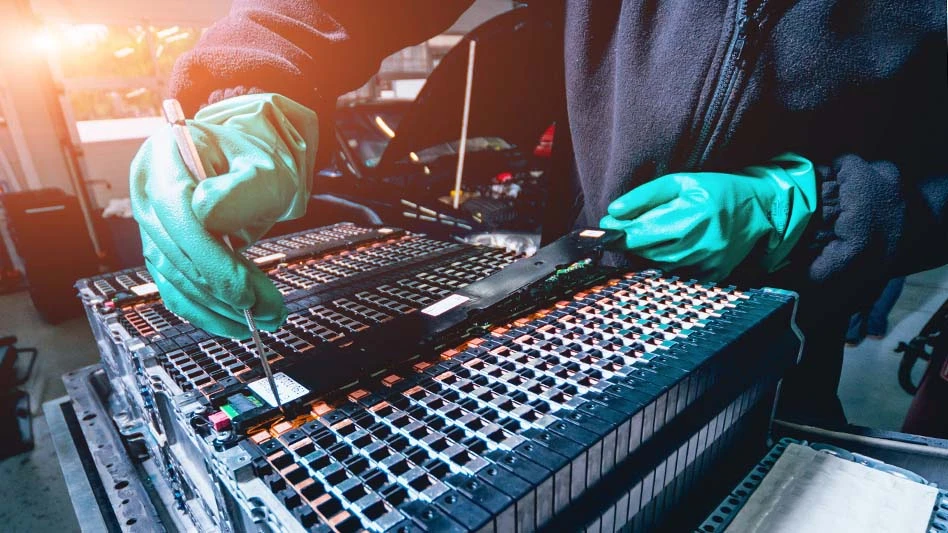
romaset | stock.adobe.com
Princeton NuEnergy Inc. (PNE), Bordentown, New Jersey, is partnering with leading scientists from Argonne National Lab, National Renewable Energy Lab, Oak Ridge National Lab and the University of California Irvine to advance and improve the efficiency of its proprietary, plasma-assisted recycling and upcycling technology for lithium-ion batteries (LIBs) with the aid of a $12 million U.S. Department of Energy Office of Energy Efficiency and Renewable Energy (EERE) grant.
The launch announcement at the Rutgers EcoComplex, 1200 Florence Columbus Rd. in Bordentown, is scheduled for Wednesday, April 5, at 9:30 a.m. Attendees will include New Jersey Congressman Andy Kim, state Sen. Andrew Zwicker, Argonne National Lab Applied Materials Division Group Leader of Materials Recycling Jeffrey Spangenberger and PNE founder and CEO Chao Yan, Ph.D.
In addition to the $12 million DOE EERE funding, PNE is a subrecipient of Tennessee Technological University's DOE award for mobile charging station development.
"Winning the DOE EERE grant is clearly an amazing achievement for the PNE team in a year full of amazing achievements,” says Xiaofang Yang, Ph.D., co-founder and chief technology officer of PNE. “I would, of course, like to express my gratitude to the DOE EERE for believing in the potential of direct recycling and upcycling technology and helping us grow. We are excited to show how we can leverage this technology for the United States' lithium-ion battery supply chain."
PNE says it is focused on recycling, repurposing and commercializing LIB materials from electric vehicles (EVs), consumer electronics, manufacturing scrap and energy storage. The company recently launched an end-to-end direct lithium-ion battery direct recycling production line with Wistron GreenTech in McKinney, Texas.
PNE's LIB recycling process involves mechanically separating the cathode and anode materials in LIBs and running the cathode powder through a low-temperature plasma reactor to remove contaminants. PNE says its method enables the repair of cathode and anode materials without completely breaking down the chemical compounds, significantly reducing energy and chemical consumption.
Compared with other LIB recycling technologies, PNE says its low-temperature, plasma-assisted separation process (LPAS) significantly reduces cost, waste and CO2 emissions, yielding higher critical material recovery rates and material performance.
The 500-ton production line in McKinney will recycle consumer batteries, LIB manufacturing scrap and spent EV cell batteries.
The DOE grant is the latest in funding that PNE has received. In 2019, after spinning out from Princeton University research, the company received $250,000 from the Small Business Innovation Research (SBIR) Phase I Fund to support early R&D. Two years later, PNE was awarded an additional $1.15 million from the SBIR Phase II fund to support further R&D.
Additionally, in May 2022, PNE closed a $7 million seed funding round led by Wistron Corp. and soon will close a Series A funding round, according to the company.
Latest from Recycling Today
- U.S. Aluminum Co. explores aluminum fabrication plant in Oklahoma
- Sonoco completes portfolio transformation
- Eriez Shred1 data demonstrates scalable copper control
- RCI selects CurbWaste as exclusive operational management platform
- Updated: Supreme Court strikes down IEEPA tariffs
- Recycling Today Media Group launches Scrap Expo Lunch & Learn Webinar Series
- LyondellBasell scales back recycling target
- Former Liberty UK mills eyed by 3 suitors





